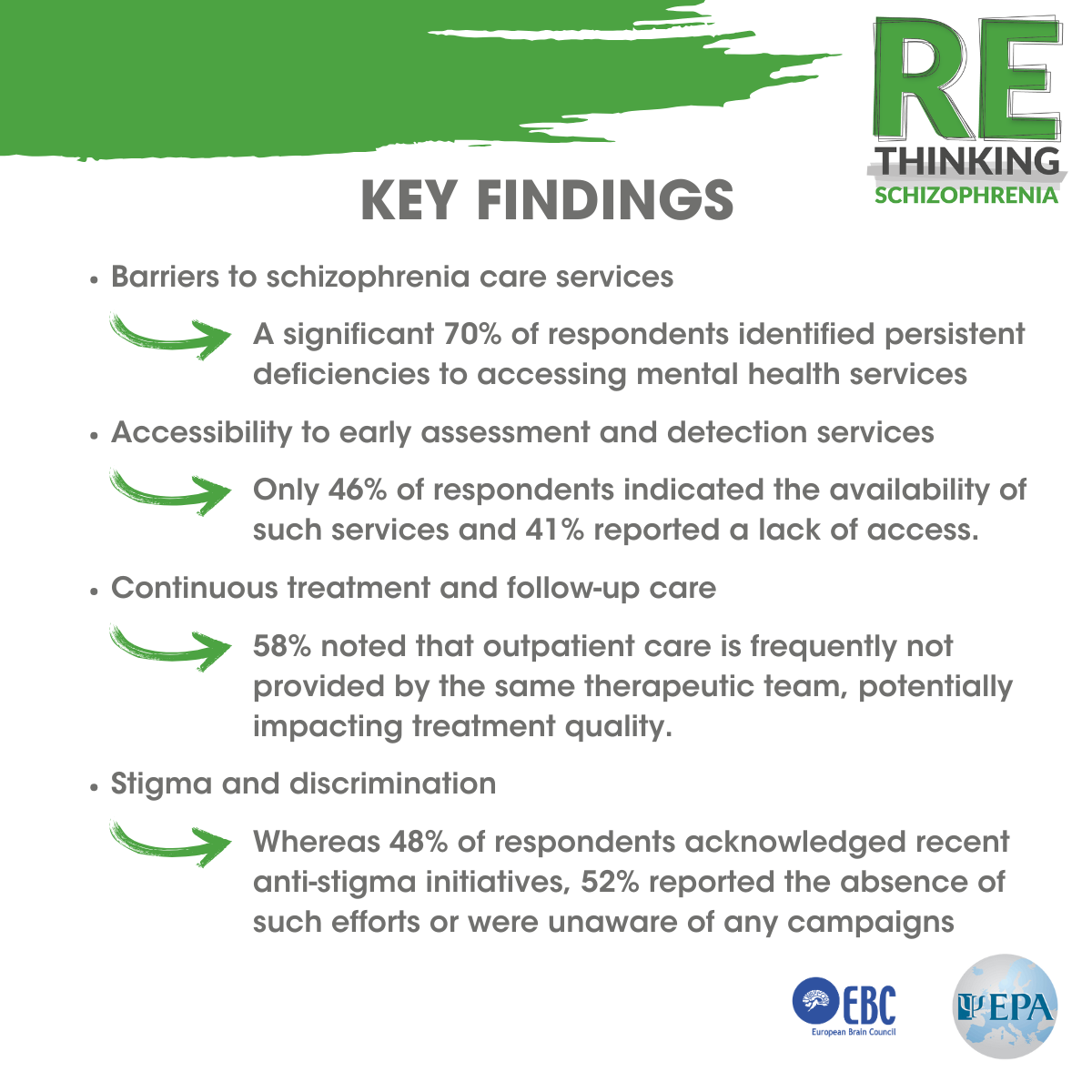EBC is thrilled to launch the Research Paper resulting from the second phase of the Rethinking Schizophrenia project, which focused on optimising the care pathway. This report, a collaborative effort from the European Brain Council (EBC) and the European Psychiatric Association (EPA), builds directly on the previous ‘Beyond the Voices’ Policy Report released in March 2024 and examines the care pathway of schizophrenia.
About Schizophrenia
Schizophrenia, a paradigmatic psychotic disorder, remains one of the most complex mental health conditions to manage. With typical onset in late teens and early adolescence, it profoundly impacts the lives of young people and their families across Europe. The burden of schizophrenia extends far beyond clinical symptoms, encompassing significant disruptions of social relationships, education, and employment. Data from the Global Burden of Disease Study highlights its status as one of the top 20 causes of years lived with disability worldwide (Lancet Psychiatry, 2024). Among those affected, 70%–90% encounter employment challenges and stable housing remains an unmet need for many (Gowda et al, 2022). Despite significant advances in treatment, the pathways to effective care remain fraught with barriers and difficult-to treat symptoms, such as persistent negative symptoms and cognitive deficits, still pose a therapeutic challenge and significantly interfere with functional recovery.
About the Rethinking Schizophrenia Second Phase
By collecting information from over 200 health practitioners, this project conducted an in-depth analysis of patient care pathways across nine European countries (Belgium, Denmark, France, Germany, Hungary, Italy, Poland, Spain and the UK), aiming to define specific strategies to advance the prevention and treatment of schizophrenia. Results highlight the urgent need for a more coordinated and multidisciplinary care approach to schizophrenia care, which fed into these policy recommendations of the report. Key areas of focus include the importance of early neuropsychological assessment, continuity of care, shared decision-making, and a recovery-oriented approach in treatment.
There are significant opportunities for progress by tackling funding gaps, enhancing the status of mental health services, reducing stigma, and addressing the social determinants of mental health and inequalities. While the transition from institutional to community-based care varies across the EU, this report highlights three key priorities for enhancing schizophrenia care: early assessment and intervention, continuity of care with shared decision-making, and a recovery-oriented approach.

This project was supported with a grant from Boehringer Ingelheim. The company was not involved in the research nor in the drafting of the report. All outputs are nonpromotional and not specific to any treatment or therapy.


